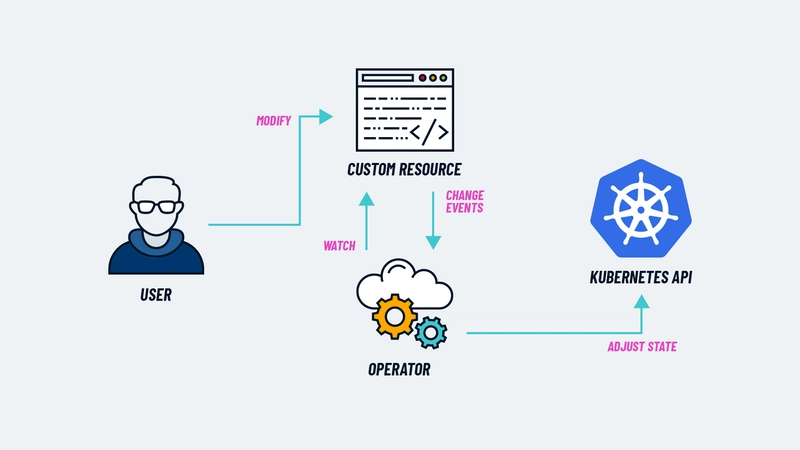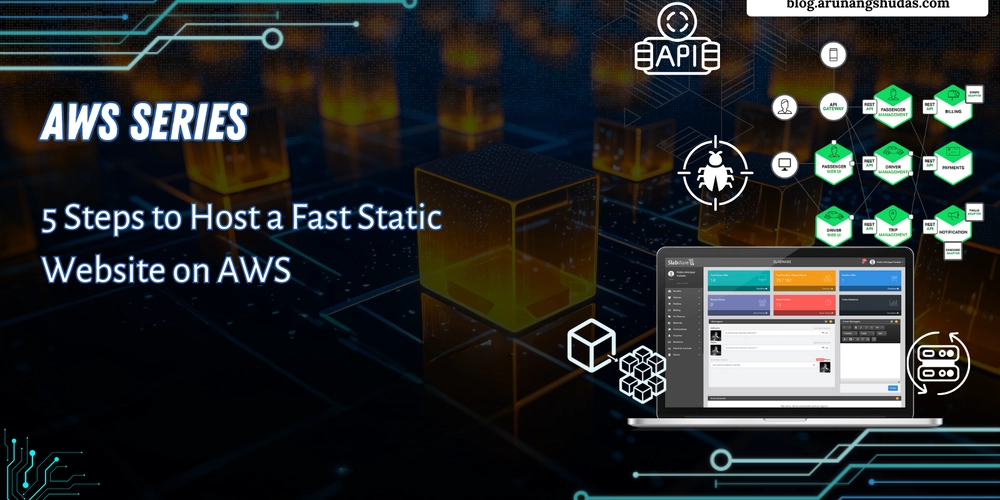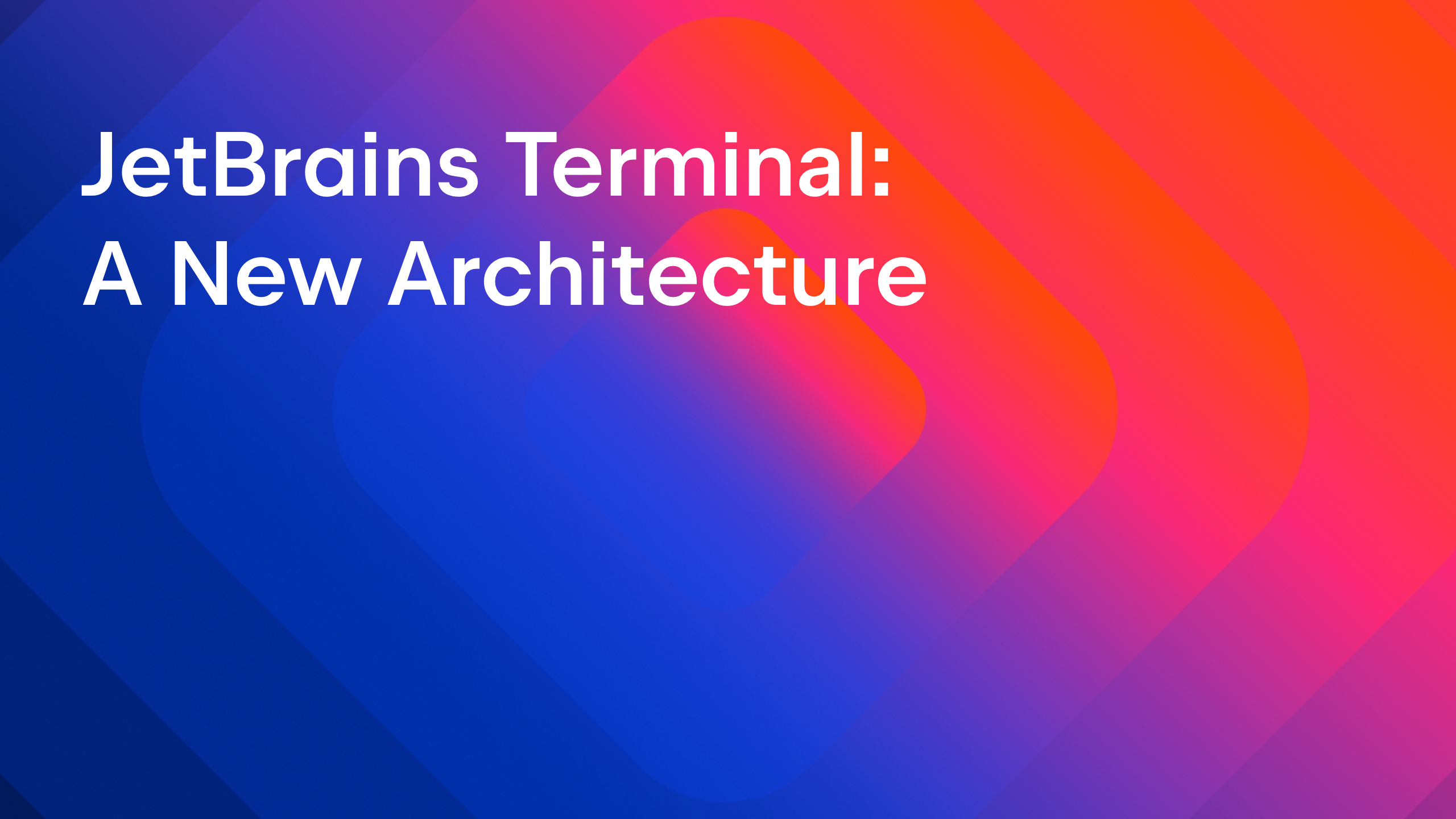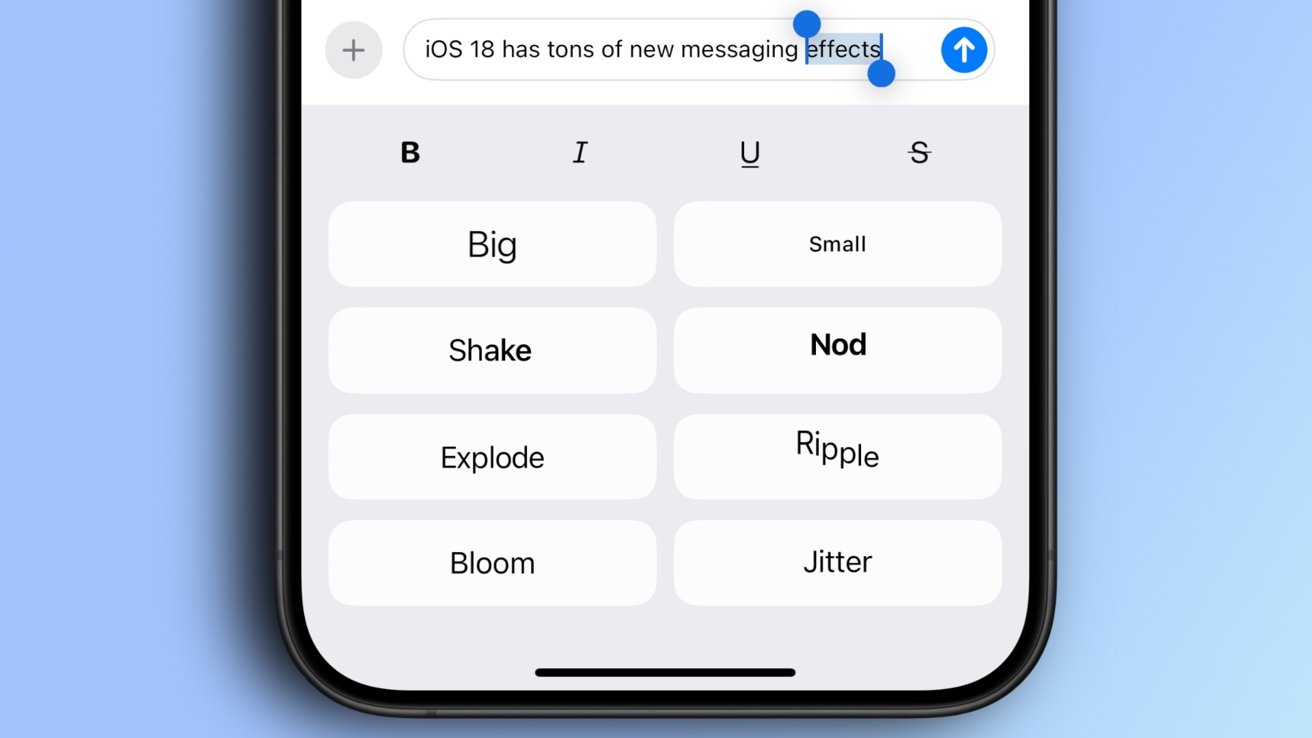Kubernetes Operators - The k8s orchestration "service"
If you're familiar with Kubernetes, you've probably heard of, used, or at least come across the term "Operators." In simple terms, an Operator is a software extension to Kubernetes that helps manage applications and their components by automating complex tasks. The official Kubernetes definition is: "Operators are software extensions to Kubernetes that make use of custom resources to manage applications and their components. Operators follow Kubernetes principles, notably the control loop". kubernetes.io What Exactly Are Kubernetes Operators? Think of Operators as specialized tools designed to simplify the management of your software. Instead of manually handling every individual part of an application—like servers, storage, or networking—an Operator allows us to treat the entire application as one cohesive unit. This way, we can focus only on the parts that need adjusting, without worrying about the technical details. Automation Made Easy Operators are not only powerful in managing applications, but they also automate everyday tasks. For instance, they handle installation, configuration, updates, backups, and even recovery—all without requiring manual intervention. Because Operators are built into the Kubernetes system, they integrate smoothly with it, allowing everything to work seamlessly together. How Do Kubernetes Operators Work? At a high level, Operators function as controllers that make it easier to package, deploy, and manage software on Kubernetes. They use Custom Resource Definitions (CRDs) to specify how an application should behave. These definitions allow the Operator to continuously monitor and adjust the application, ensuring that it always matches the desired state. For example, if an application needs more resources or a restart, the Operator can take care of it automatically, skipping any human intervention. Why Are Operators So Powerful? In essence, Operators take on the heavy lifting of managing complex applications. By using Kubernetes APIs and principles, Operators can automate tasks that would otherwise require manual configuration or intervention. This makes them an invaluable tool for any Kubernetes-based infrastructure, offering streamlined management and reducing the need for constant oversight. In Conclusion Kubernetes Operators are "set-it-and-forget-it" tools that automate and manage complex tasks behind the scenes, ensuring your applications stay healthy, up to date, and running smoothly. They bring immense power, particularly in complex or large-scale environments, by eliminating manual intervention and streamlining processes. With Operators, you can save time, optimize resources, and maintain consistency and reliability across your Kubernetes cluster, making them an essential tool for modern application management. References: https://kubernetes.io/docs/ https://www.cncf.io/blog/2022/06/15/kubernetes-operators-what-are-they-some-examples/

If you're familiar with Kubernetes, you've probably heard of, used, or at least come across the term "Operators." In simple terms, an Operator is a software extension to Kubernetes that helps manage applications and their components by automating complex tasks.
The official Kubernetes definition is:
"Operators are software extensions to Kubernetes that make use of custom resources to manage applications and their components. Operators follow Kubernetes principles, notably the control loop". kubernetes.io
What Exactly Are Kubernetes Operators?
Think of Operators as specialized tools designed to simplify the management of your software. Instead of manually handling every individual part of an application—like servers, storage, or networking—an Operator allows us to treat the entire application as one cohesive unit. This way, we can focus only on the parts that need adjusting, without worrying about the technical details.
Automation Made Easy
Operators are not only powerful in managing applications, but they also automate everyday tasks. For instance, they handle installation, configuration, updates, backups, and even recovery—all without requiring manual intervention. Because Operators are built into the Kubernetes system, they integrate smoothly with it, allowing everything to work seamlessly together.
How Do Kubernetes Operators Work?
At a high level, Operators function as controllers that make it easier to package, deploy, and manage software on Kubernetes. They use Custom Resource Definitions (CRDs) to specify how an application should behave. These definitions allow the Operator to continuously monitor and adjust the application, ensuring that it always matches the desired state.
For example, if an application needs more resources or a restart, the Operator can take care of it automatically, skipping any human intervention.
Why Are Operators So Powerful?
In essence, Operators take on the heavy lifting of managing complex applications. By using Kubernetes APIs and principles, Operators can automate tasks that would otherwise require manual configuration or intervention. This makes them an invaluable tool for any Kubernetes-based infrastructure, offering streamlined management and reducing the need for constant oversight.
In Conclusion
Kubernetes Operators are "set-it-and-forget-it" tools that automate and manage complex tasks behind the scenes, ensuring your applications stay healthy, up to date, and running smoothly. They bring immense power, particularly in complex or large-scale environments, by eliminating manual intervention and streamlining processes. With Operators, you can save time, optimize resources, and maintain consistency and reliability across your Kubernetes cluster, making them an essential tool for modern application management.









































































































































































![[The AI Show Episode 143]: ChatGPT Revenue Surge, New AGI Timelines, Amazon’s AI Agent, Claude for Education, Model Context Protocol & LLMs Pass the Turing Test](https://www.marketingaiinstitute.com/hubfs/ep%20143%20cover.png)


















































































































![[Tutorial] Chapter 9: Task Dashboard: Charts](https://media2.dev.to/dynamic/image/width=800%2Cheight=%2Cfit=scale-down%2Cgravity=auto%2Cformat=auto/https%3A%2F%2Fdev-to-uploads.s3.amazonaws.com%2Fuploads%2Farticles%2Fnotu3uxqtwmann665q6r.png)
![[Tutorial] Chapter 10: Task Dashboard (Part 2) - Filter & Conditions](https://media2.dev.to/dynamic/image/width=800%2Cheight=%2Cfit=scale-down%2Cgravity=auto%2Cformat=auto/https%3A%2F%2Fdev-to-uploads.s3.amazonaws.com%2Fuploads%2Farticles%2Ffjbdyeaw51nx8g13ag12.png)












![From drop-out to software architect with Jason Lengstorf [Podcast #167]](https://cdn.hashnode.com/res/hashnode/image/upload/v1743796461357/f3d19cd7-e6f5-4d7c-8bfc-eb974bc8da68.png?#)








































































































.jpg?#)
































_ArtemisDiana_Alamy.jpg?#)


 (1).webp?#)







































































-xl.jpg)













![Yes, the Gemini icon is now bigger and brighter on Android [U]](https://i0.wp.com/9to5google.com/wp-content/uploads/sites/4/2025/02/Gemini-on-Galaxy-S25.jpg?resize=1200%2C628&quality=82&strip=all&ssl=1)









![Apple Rushes Five Planes of iPhones to US Ahead of New Tariffs [Report]](https://www.iclarified.com/images/news/96967/96967/96967-640.jpg)
![Apple Vision Pro 2 Allegedly in Production Ahead of 2025 Launch [Rumor]](https://www.iclarified.com/images/news/96965/96965/96965-640.jpg)





































































































































